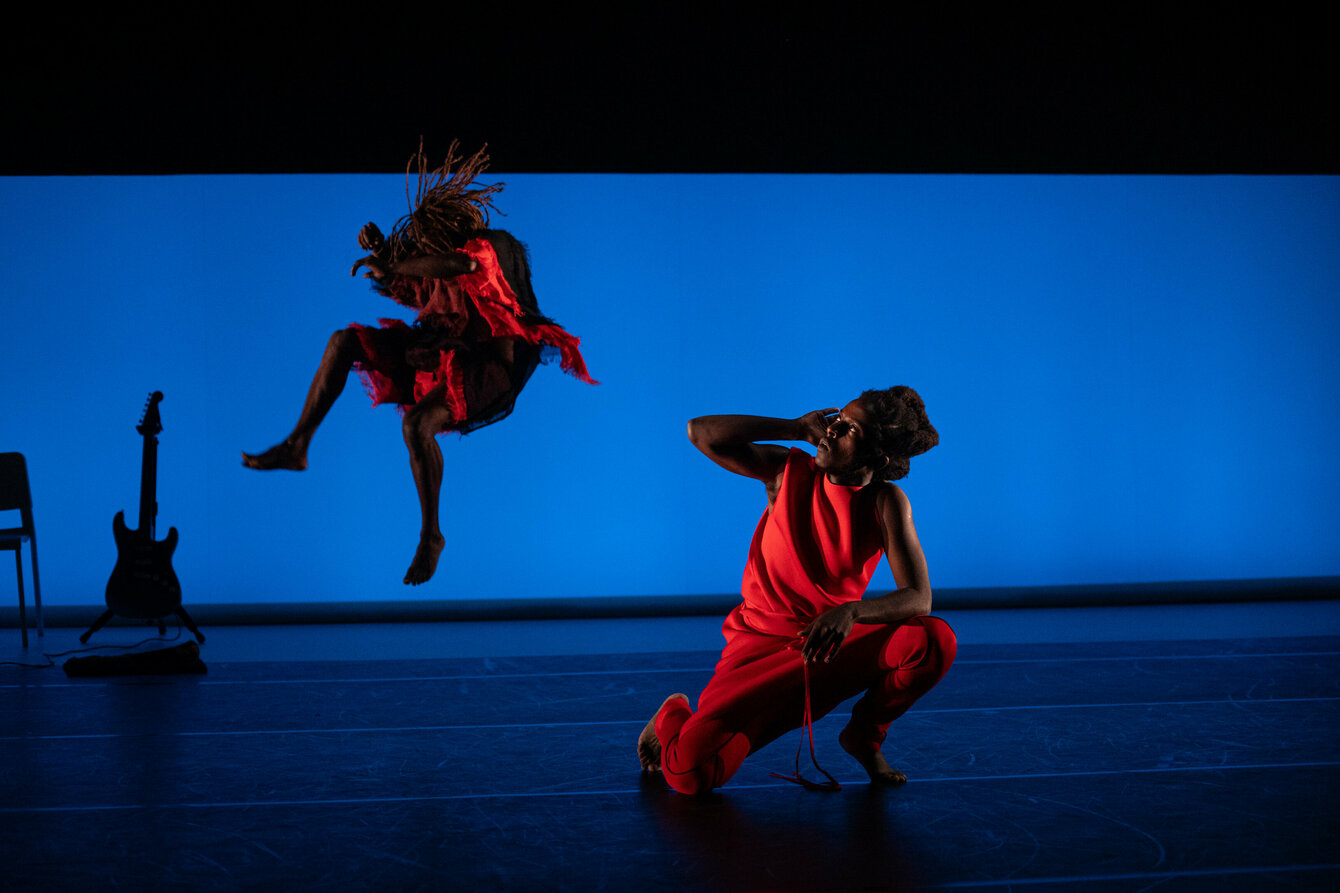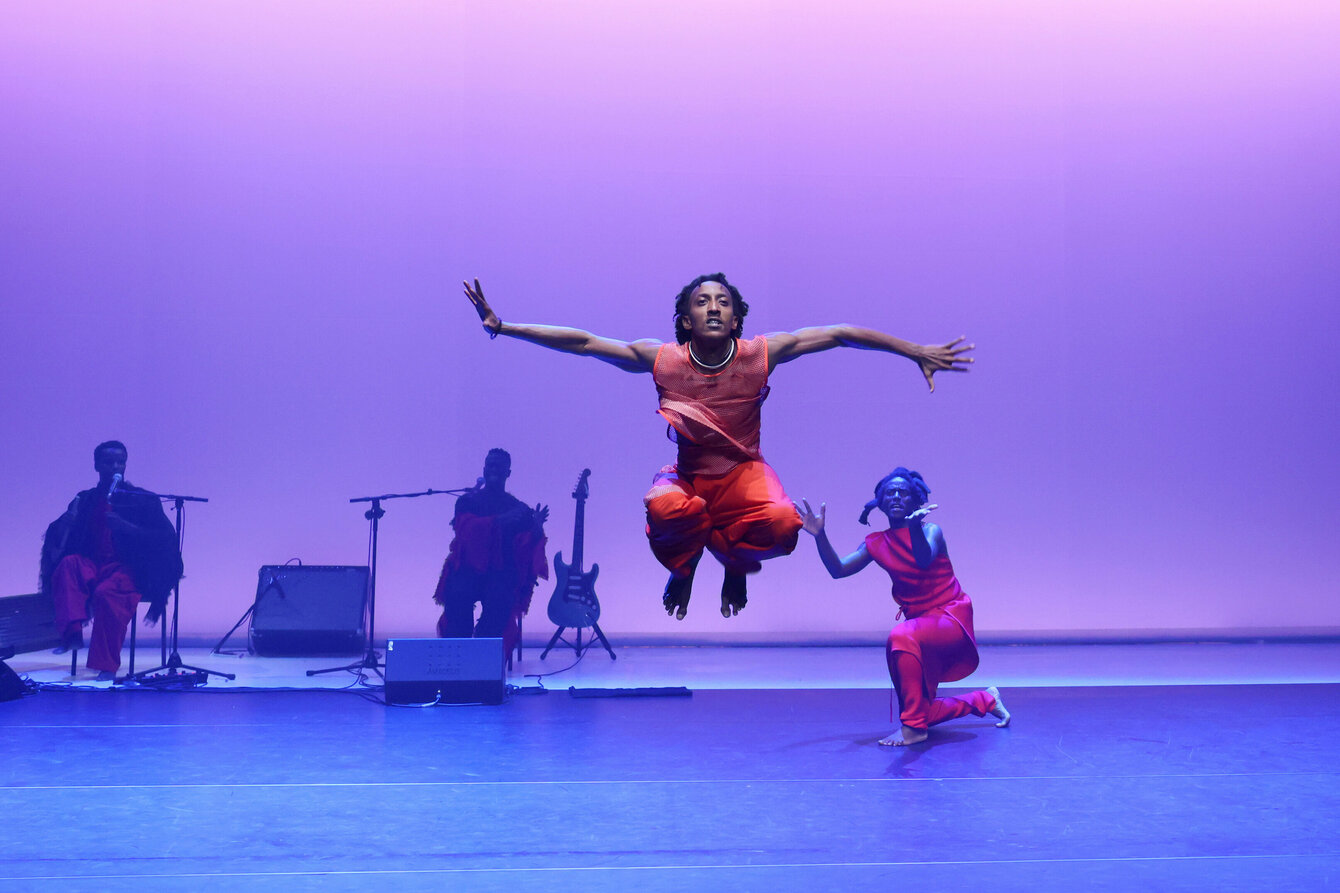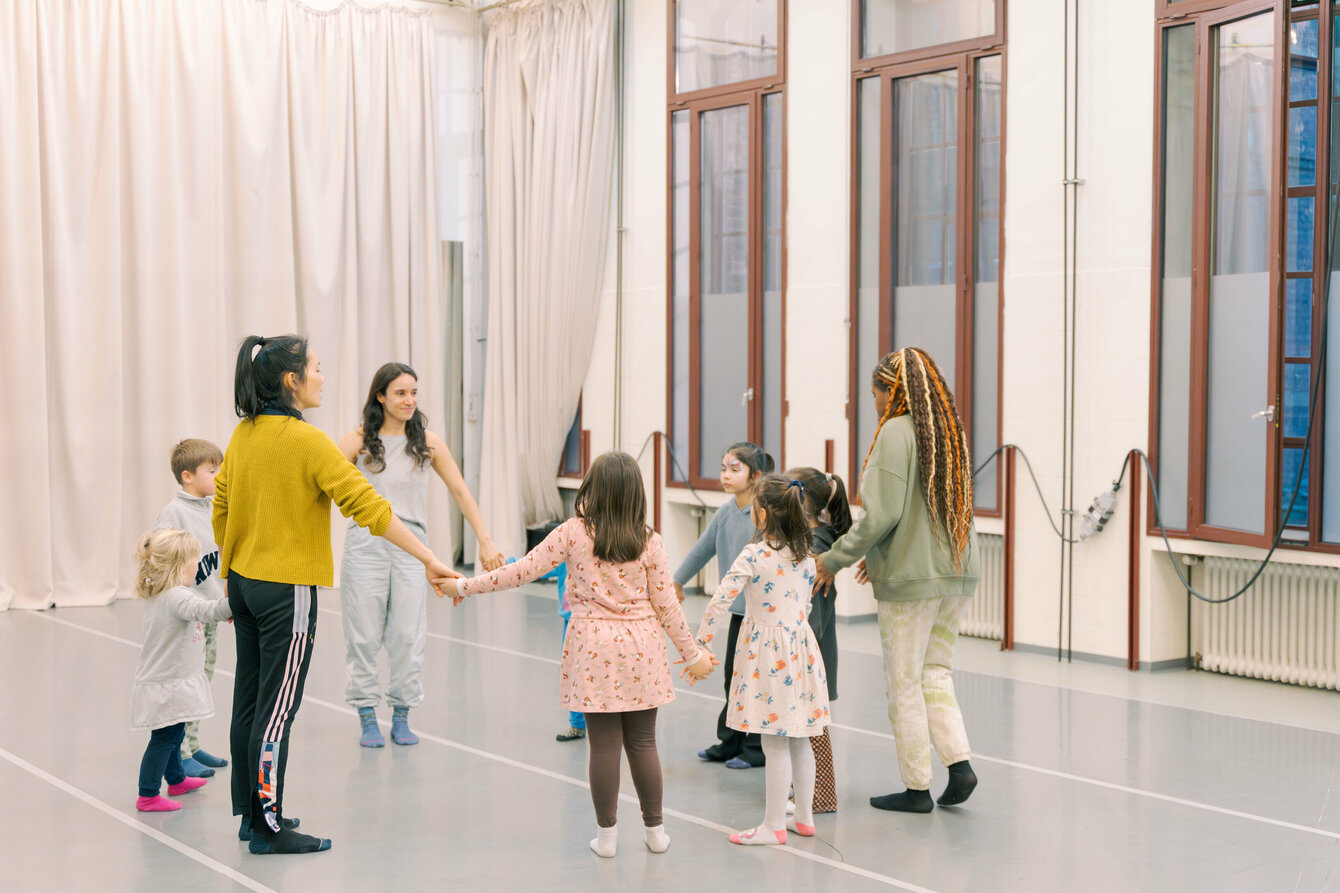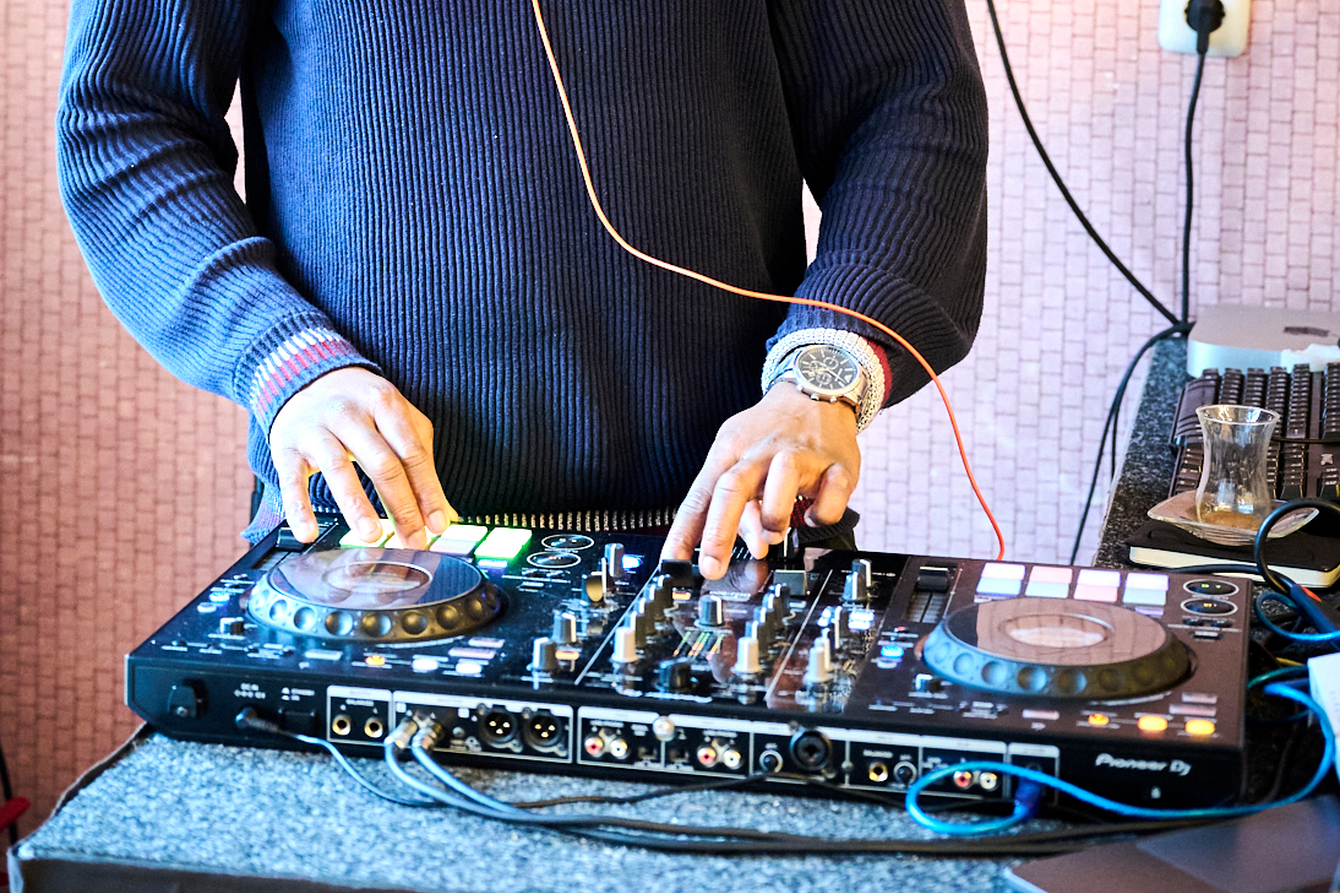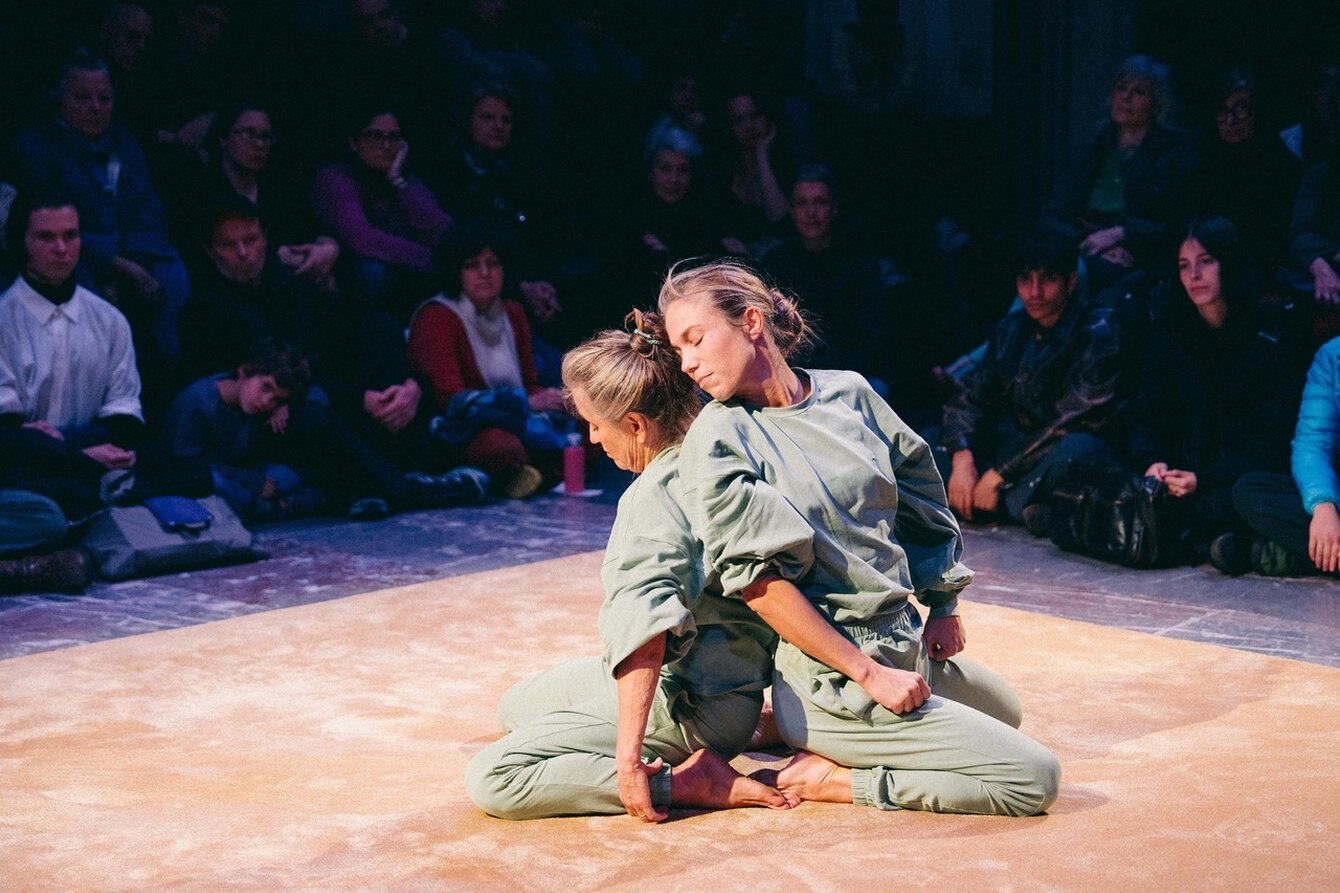Dorothée Munyaneza
/ Cie Kadidi
umuko
Duration. 70 min.
The performance on March 28 will be followed by an artist talk with Dorothée Munyaneza.
For the performances we offer early boarding. This involves advance admission to the stage area. The offer is aimed at people who may require the opportunity to experience the conditions of the venue in advance and to find a suitable seat in relation to their own needs. Registration for early boarding: service@pact-zollverein.de
Dorothée Munyaneza about her piece ›umuko‹:
Transcript of the audio file: My name is Dorothée Munyaneza and I am a multi disciplinary artist, I am here to talk to you about ›umuko‹ which is my new choreographic piece. I created umuko for and with Impakanizi, Jean Patient Nkubana, Abdoul Mujyambere, Michael Makembe and Cedrick Mizero. These are the five wonderful multi disciplinary artists, themselves from Rwanda who sing, play the drums, dance, and I wanted to make sure that somehow through this artistic work I was celebrating their beauty, their flamboyance, their youth, and our history. Because the tree umuko has a deep meaning for the Rwandan people, particularly in pre colonial times it was a very important tree in our mythologies, in our religious practices, in our ways of interacting with living and non living things and the invisible. And so by returning to the roots, to the branches and to the red flowers of this tree, by going to the land where this tree first fascinated me when I was growing up in Rwanda, I wanted to celebrate this young generation of artists who are shifting the narrative and creating other pathways of how art is being made and what stories are being centered or told. I wanted to put them in the center and use music, choreography, singing, poetry, beauty and joy as part of the tools of our collaboration and creating this work. So for me the artistic work umuko is about centering the tree umuko, and putting the tree umuko in the middle, in our midst, and centering this youth that connects us to ejo, which in Kinyarwanda means both yesterday and tomorrow. The five artists on stage are part of a larger generation of creatives whose presence and creativity today testify of a knowledge that has been passed down and of a future we can all hope for unabashedly. Thank you.
A beautiful tree with vermillion-coloured flowers is at the heart of Dorothée Munyaneza’s new work. In Ruanda the umuko tree is traditionally considered a healer and keeper of stories, a symbol for the resilient ties between past, present and future. It also holds a special place in Munyaneza’s childhood memories. Together with five young Rwandese dancers, musicians and poets, the multidisciplinary artist celebrates the creativity, audacity, and freedom of what Kae Tempest calls "brand new ancients": people who carry forward the memory of a common heritage, while dreaming about the future, and resisting the omnipresent danger of annihilation. ›umuko‹ is a powerful celebration of joy, love, and solidarity.
Dorothée Munyaneza was recently awarded the prestigious Salavisa European Dance Award (Seda) in Portugal.
Artistic direction: Dorothée Munyaneza In collaboration with & performed by: Jean Patient Nkubana, Impakanizi, Cedrick Mizero, Abdoul Mujyambere, Michael Makembe Costumes: Stéphanie Coudert Music: Impakanizi, Jean Patient Nkubana and Michael Makembe Light & scenography: Camille Duchemin Sound management: Aude Besnard Light management: Camille Faye Production: Virginie Dupray, assisted by Nouria Tirou and Louise Mutabazi/ cie Kadidi Coproduction: Dance Reflections by Van Cleef & Arpels, Chaillot Théâtre national de la danse, Maison de la danse Lyon - Pôle européen de création, PACT Zollverein Essen, Julidans Amsterdam, deSingel Antwerp, Tanz im August – HAU Hebbel am Ufer Berlin funded by the Capital Cultural Fund, Kaai Theater Brussels, Oriente-Occidente Festival Rovereto With support from: Institut français du Rwanda, Goethe-Institut, Franco-German Fund for Culture. The Kadidi company is supported by the DRAC Provence-Alpes-Côte-d'Azur / French Ministry of Culture.
